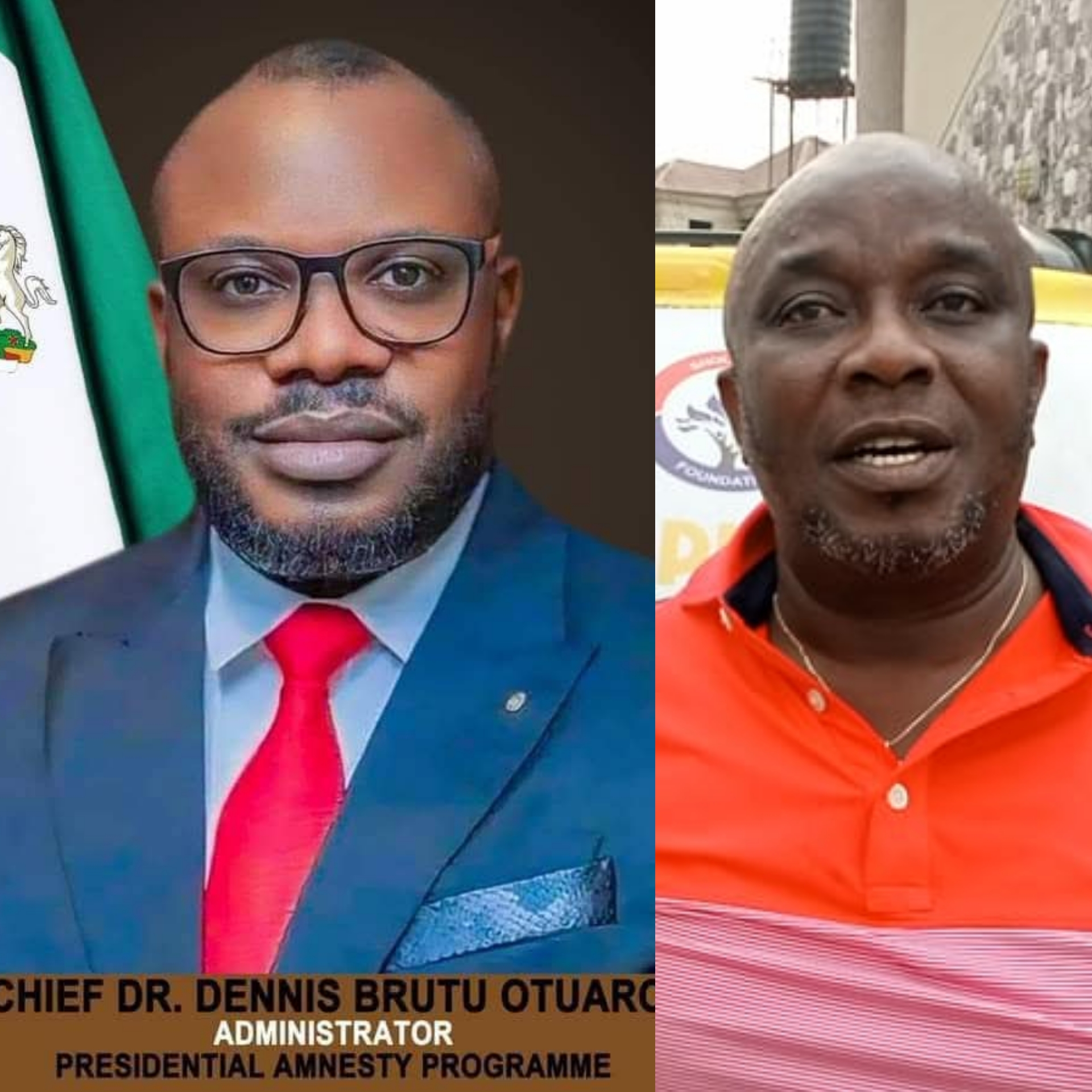The Dr. Dennis Otuaro Volunteer Media Team has noted with concern the recent statements credited to Dr. Shola Mese, an Itsekiri representative at the Presidential Amnesty Programme (PAP) office, which contain significant misrepresentations of historical facts and the foundational principles of the Programme. While we advocate for robust dialogue among all Niger Delta stakeholders, such discourse must be anchored in truth and a correct understanding of the PAP's mandate. Dr. Mese's assertions, unfortunately, deviate from this standard and appear engineered to foster division rather than promote the collective progress of the region.
Our primary objective is to set the record straight and reaffirm the commitment of the PAP Coordinator, Dr. Dennis Otuaro, to an equitable, transparent, and effective administration that serves all beneficiaries in line with the Programme's enabling proclamation.
The central claim of Itsekiri exclusion under Dr. Otuaro’s leadership is demonstrably false and misleading. In fact, Dr. Mese's grievance seems to originate not from a genuine case of ethnic marginalization, but from intra-ethnic political dynamics regarding which specific Itsekiri individuals or factions receive opportunities. The record shows that Dr. Otuaro's administration has acted with commendable inclusivity.
A spokesperson for the team stated:
"It is a matter of public record that from the early stages of the Programme, a significant number of Itsekiri youths—upwards of 500—were graciously accommodated, even though they were not captured under the original terms of the presidential proclamation. Dr. Otuaro has not only sustained this legacy of inclusion but has actively worked to improve upon it. Dr. Mese himself has acknowledged the allocation of amnesty, scholarship, and reintegration slots to the Itsekiri. To then turn around and allege exclusion is a profound contradiction."
The demand for opportunities to be allocated on a basis of ethnic parity with the Ijaw nation is a fundamental misinterpretation of the PAP’s framework. The Programme was not designed as a federal character agency for the Niger Delta; it is a specialized post-conflict intervention aimed at disarming, demobilizing, and reintegrating ex-agitators who were central to the conflict that necessitated its creation. The Ijaw, being at the epicentre of the agitation and bearing the brunt of its consequences, naturally constitute the primary demographic of the Programme. To demand parity is to ignore the historical context that birthed the PAP.
It is imperative to revisit the historical antecedents of the Amnesty Proclamation of 2009. The terms, as articulated by the late President Umaru Musa Yar'Adua, were specific: a pardon was extended to militants who laid down their arms. During this period, prominent Itsekiri leaders publicly and repeatedly distanced their people from acts of militancy, pipeline vandalism, and associated criminalities, articulating a collective identity of being "civilised and polished citizens."
Furthermore, they asserted that their communities were not subjected to the widespread military actions that devastated many Ijaw communities. This historical self-distancing from the core issues the PAP was created to address cannot be conveniently erased. A glaring testament to the disparity in impact is the N99 billion consent judgment from the Federal High Court in Asaba, awarded against the Federal Government for the destruction of Gbaramatu-Ijaw communities. No such corresponding legal validation exists for Itsekiri communities, because they did not suffer a comparable fate. Dr. Mese’s attempt to retroactively paint a picture of equal suffering is a revisionist narrative that crumbles under factual scrutiny.
Dr. Mese's claim to be one of the "founders" of the Presidential Amnesty Programme is factually inaccurate and historically unsubstantiated. We recognize his role in facilitating the disarmament of certain Itsekiri youths at Koko, where a collection of dane guns was surrendered. However, this act constitutes participation in the disarmament phase of the Programme, not its conceptualization.
A team analyst clarified the distinction:
"Facilitating the surrender of arms on behalf of a state government, as Dr. Mese did for the Governor Uduaghan administration with figures like the late John Togo and Gen. Ezekiel of the Egbema-Ijaw, is an operational role. It is functionally distinct from the high-stakes advocacy, strategic negotiations, and intellectual groundwork carried out by the key figures who convinced President Yar'Adua of the viability and necessity of an amnesty initiative. Dr. Mese was an implementer of a specific component, not an architect of the entire edifice. To equate the two is a gross overstatement of his historical involvement."
The Dr. Dennis Otuaro Volunteer Media Team urges all stakeholders in the Niger Delta to eschew divisive rhetoric and collaborate towards the sustainable peace and development of our region. Dr. Otuaro's administration remains steadfast in its mission to successfully reintegrate all genuine beneficiaries of the PAP and to manage the Programme with the integrity and focus it deserves. We encourage Dr. Mese to channel his efforts towards constructive engagement that will benefit the Itsekiri people and the entire Niger Delta, rather than pursuing a divisive agenda based on flawed historical and logical premises. The door for productive partnership remains open to all who are committed to the collective good.
Signed: Chief Gen. Inko Brightstar a.k.a Whoknows Tomorrow Coordinator Dr. Dennis Otuaro Volunteer Media Team




Comments
Please login to leave a comment.